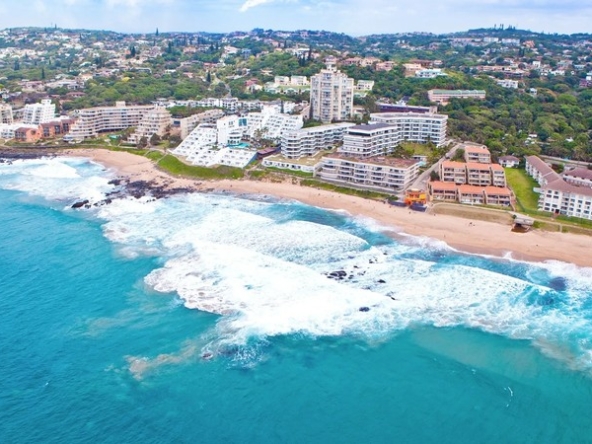The housing markets in the Western Cape and Eastern Cape are driving property prices in the region as they offer the enviable coastal lifestyles that buyers are looking for – and affluent foreign buyers can afford.
The Western Cape has seen a 10 percent increase in property prices from August 2022 to August this year, and while this performance is not unexpected in the country’s semigration hotspot, it is noteworthy that neighbouring Eastern Cape is showing similar house price growth.
The September 2023 BetterBond Property Brief reveals that house prices in the Eastern Cape have increased by just over eight percent, the second-highest increase year-on-year.
“The rise of the Eastern Cape, notwithstanding its natural beauty, unspoilt coastline, and enviable lifestyle, seems almost counter-intuitive,” says Bradd Bendall, head of sales at BetterBond, explainining that Lightstone has reported that the province is one of the most undesirable in the country, with slow population growth and limited economic opportunities.
However, its property boom is being driven by its smaller seaside towns that offer great lifestyles for families relocating from Gauteng and other provinces. July data shows that property prices in the Eastern Cape are highest in its smaller towns, where homes are selling for an average of R2,4m in Cape St Francis and R2,1m in St Francis Bay.
Barry Davies of Chas Everitt International says St Francis has seen a massive influx of new families moving into the area as semigration continues. Another popular holiday destination is Port Alfred, where the average sales price is R1,5m. By comparison, average house prices in Gqeberha are considerably lower at R840,000.
The Eastern Cape’s performance in terms of house price growth and sales volumes comes off a relatively low base, but the Western Cape is a long-term top performer. Davies says markets in this province attract buyers in the higher price bands.
Cape Town is home to some of the country’s most upmarket residential areas, including Clifton and Bantry Bay on the Atlantic Seaboard. The province also attracts high-net-worth individuals (HNWI) who are able to spend many millions on property. These buyers also look to the picturesque Boland towns of Franschhoek, Paarl, and Stellenbosch in the Cape Winelands area. The coastal town of Hermanus is the fastest-growing area in the province for HNWIs, according to the Africa Wealth Report for 2023, published by Henley & Partners and New World Wealth.
Known for its efficient service delivery and economic opportunities, Bendall says the Western Cape has become the province of choice for homebuyers looking to relocate. It is also home to many excellent schools, some of the country’s best tertiary institutions, and world-class medical facilities. Many of these assets are in Cape Town, rated by municipal financial sustainability index Ratings Afrika as among the top-performing municipalities in the country.
George and Mossel Bay also scored well, ranking first and third. As a result, these coastal towns have also enjoyed considerable growth in recent years, especially as hybrid working arrangements have become common practice for many.
“A renovated home at the Point, in Mossel Bay, recently sold for R39m, the highest price ever in the area…No longer viewed only as holiday destinations, these popular coastal towns offer enviable lifestyles and competitive property prices,” he says.
Although demand is driving house price growth, with Lightstone reporting a seven percent price inflation of coastal properties compared with the 2.4 percent growth of prices of inland properties, they are still accessible to many buyers.
“With so much to offer, from natural beauty and amenities to reliable infrastructure and efficient service delivery, it’s understandable that the number of people relocating to the coast has increased from 31 percent in 2018 to 46 percent currently.”
Joanna Thomas, Constantia area specialist, and Stephan Thomas, Constantiaberg secure estate specialist for Lew Geffen Sotheby’s International Realty, both report a sharp increase in foreign buyer interest with a number of high-ticket sales concluded during the past year. They say there has been a lot more interest from UK and European buyers, mainly HNW and Ultra-HNW individuals, and the R20m-plus price band has been very active, with a few of sales exceeding R40m.
Historically, HNWIs, particularly those from Europe, favoured investing in luxury properties within their own continent, and renowned cities like London, Paris, and Monaco have held a timeless appeal. However, recent geopolitical uncertainties, economic fluctuations, and shifts in global dynamics have compelled investors to rethink their real estate portfolios, Stephan Thomas says.
“Traditionally perceived as a safe haven for real estate investments, Europe has recently faced challenges that have prompted high-end investors to reconsider their options, with factors such as economic instability, changing regulatory landscapes, and the impact of events like Brexit contributing to a shift in perception.
“Multi-continental property portfolios offer a hedge against economic uncertainties in any single region and provide an opportunity to capitalise on the unique advantages and growth potential of different markets.”
Joanna Thomas adds that most foreign buyers in previous years were ‘swallows’ who spent the summer in Cape Town to escape the European winter but there has been a notable shift in the past two years.
“In addition to the traditional swallows, we are now also seeing an increase in the purchase of second and even third holiday homes which are occupied for much shorter periods of time – and these are often much higher value properties.”
IOL Business



